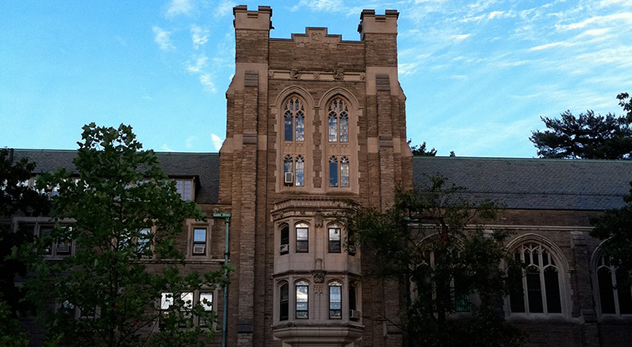Finding God at America’s Most Infamous Divinity School
"Not long ago, Harvard Divinity School stood for something," First Things editor R.R. Reno once wrote. The implication is that this infamous divinity school no longer stands for anything. Except perhaps theological liberalism in its most potent form. Many Harvard Divinity professors see the Bible as deeply flawed relic, perhaps worthy of academic analysis but lacking even a drop of spiritually transformative power. They will tell you that Paul was probably gay and Jesus was likely married and that the latter was no more divine than the former.
Is it possible to find a personal, living God in a place like this? Andrea Raynor did. At least in the 1980s and 90s. Andrea arrived to study religion, lived in the dean's home where she worked as a maid, and left an ordained minister. Here, we discusses her often surprising experiences at HDS and Andrea's new book, "Incognito: Lost and Found at Harvard Divinity School."
RNS: The stereotype of Harvard Divinity School (HDS) is a post-Christian, religiously antagonistic bastion of liberalism where only a Unitarian would be comfortable. Is this a complete stereotype or mostly right?
AR: My first response to this question was that Harvard Divinity School was not antagonistic in any way—religiously, socially, or politically. I think so fondly about my experience there (which was, admittedly, a number of years ago now), that only the best memories remain. But after checking in with my best friend Katherine, who lived it with me, I was reminded that there were moments of conflict, and even what one might accurately call antagonism. Sharp minds can fling sharp words. The challenge was to take these difficult moments and to learn from them. This wasn’t always easy. Even so, I found HDS to be a place where any person of any faith could feel comfortable, if they were willing to engage in genuine dialogue.
Because of its emphasis on scholarship, one might accurately say that the community was more theologically liberal than conservative, but I wouldn’t describe it as post-Christian. Come to think of it, I wouldn’t describe it as Christian at all, which is not a criticism in any way. Harvard Divinity School is not a seminary, whose primary mission is to turn out ministers; rather, it is a nonsectarian institution intent on educating students in the study of religion and to prepare them for leadership in religious, governmental, and service organizations. There were Christians at HDS, certainly, just as there were Jews, Buddhists, and atheists. I did not go to Harvard because I wanted to be a minister—in fact, just the opposite. I went to study and to learn, and to find a pathway to service. That I emerged an ordained minister surprised even me.
